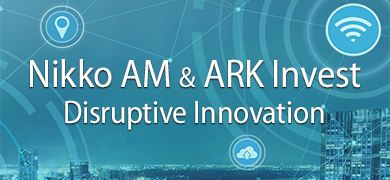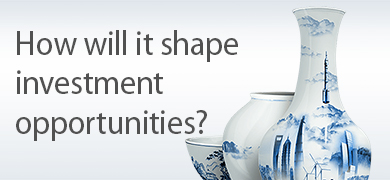Nikko AM’s Head Portfolio Manager – Core Markets, Steven Williams, recently participated in Asset TV’s Masterclass on the threats and opportunities for investors in the climate transition. Here are the highlights of Steven’s contribution to the discussion.
Key Takeaways
- For fixed income investors, impact and engagement are going to be key factors in the transition to net zero.
- Green and sustainable bonds provide a unique opportunity to achieve direct impact.
- Supporting transitioning companies in the hard-to-abate “brown” sectors will be the most impactful, as they contribute most to the carbon output.
Q: Climate transition is a complex topic with lots of nuances – what are your key focuses?
In the transition to net zero, our idea is to focus on impact and engagement. We are engaging in the global fixed income markets, and using green and sustainable investments in the transition towards overall sustainability in order to meet net zero targets. We are particularly trying to focus on those companies which have ambitious targets for net zero and carbon reduction.
This is an area that is going to affect us all going forward so we have a vested interest in tackling this issue. However, for investors, impact and engagement are going to be key.
Q: As a sustainably-orientated fixed income investor, do you think you are better able to generate returns by avoiding the looming risks on the horizon or by tapping into real opportunities?
Fixed income provides a unique opportunity, especially in green and sustainable bonds, as they enable direct impact. To clarify, green bonds are part of the wider sustainable bonds universe. Sustainable bonds encompass everything in terms of social and green bonds, which are currently the majority subset of this wider universe and focus more on pure carbon impact.
So by investing in green bonds, we are working with companies looking to finance projects with environmental benefits. We have a focus on companies in the traditional and developed industries—those that actually contribute most to the carbon output. We believe that investing in this space is going to have a significant impact in transitioning these traditional brown industries away from contributing to climate change.
Tax incentives, such as the Inflation Reduction Act in the US, are going to have a significant impact going forward in terms of meeting net zero targets by helping these traditional brown industries readjust.
Green bonds are also having an impact on emerging markets, particularly investments via the multilateral development banks which allocate capital to emerging markets. We think this will help those economies emerge from poverty and align their standards of living with the rest of the world.
Q: Do investors need to prioritise values over performance when considering sustainable investments?
In terms of green and sustainable bonds, there has been an issue around the notion of “greeniums” and yield premiums historically, which we think is reflective of the more limited liquidity in this up-and-coming space. Now that the market has grown, to slightly less than USD 4 trillion, these issues have become less of a factor and we are now seeing yields in the sustainable space comparable to those in the traditional global fixed income universe, therefore we do not believe investor returns will need to be sacrificed. In our view, you can create a green and sustainable portfolio that will equal the returns from traditional fixed income.
Q: Is it true that for some sustainable bonds the coupon will go down a little if targets are being met?
This refers to sustainability-linked bonds, which is an emerging sector that has merit but where, at present, uncertainties remain. For example, it’s unclear whether the EU Taxonomy will qualify them for inclusion in Article 9 funds, which will be determined in the autumn.
Overall, we think a system of incentives, rather than a defined use of proceeds, is positive but more work needs to be done as these covenants are often toothless and could be developed further. However, we don’t want to discount this area entirely. There are certainly some companies that have stated some ambitious carbon transition targets, but doing your due diligence is particularly important for these investments. Click here for further insight into the case for sustainability-linked bonds.
Q: Do you use conventional mainstream bond indices and try to beat them through active and sustainable management, or do you use tilted benchmarks?
We use tilted benchmarks that are filtered to reflect the sustainable universe. However, the issue with some of these tilted universes is that they focus on services and tech companies that traditionally don’t have a lot of climate impact. In our view, most impact is going to come from the brown space—traditional oil and gas and hydrogen producers and companies looking to transition away from the grey space.
Q: As you have stated, the only way the world is going to get better is if we reform some of the sinners in these brown areas. How do you align having such companies in your portfolio?
Instead of just passively investing, we actively engage with the issuers, analysing where proceeds are going, what are these companies doing, how transparent they are, what data they are providing and whether we can monitor these investments. We even consider the character of the management—are they going to do what they say, do we believe them, are they credible? All of these factors and doing your own due diligence can confirm whether what they are saying is true.
Q: How can you influence corporates as a bondholder, as opposed to an equity holder who has voting rights?
Simple things, such as taking a meeting with an issuer or going to a conference can make a difference. Debt investors may not have a vote, but we can vote with our feet and simply not invest while continuing to follow what these companies are doing. We can also ask questions of investor relations departments—they are usually responsive and cordial – and therefore you generally receive a response regardless of how large/small an investor you are. So while we can’t vote, we can still ask, and we believe that’s very important on the engagement side for fixed income holders.
Q: What are the areas you are most focused on?
Electricity generation is going to be critical as it is such a high contributor to the global carbon output, so providing capital to enable that transition to green and renewable power sources will be essential. Particularly when you consider forecasts suggest electricity consumption is going to double or perhaps quadruple over the next 30 years; much of the capital needed for that expansion is going to come from the debt markets so picking and choosing the utility providers that have ambitious targets is going to be key.






